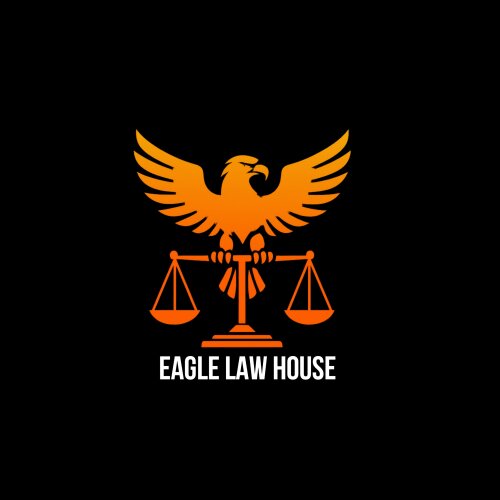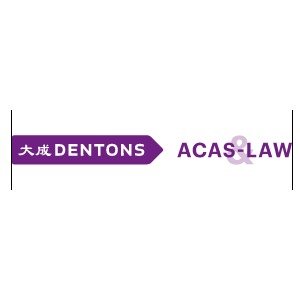Best Work Permit Lawyers in Nigeria
Share your needs with us, get contacted by law firms.
Free. Takes 2 min.
Or refine your search by selecting a city:
List of the best lawyers in Nigeria
Legal guides written by Adeola Oyinlade & Co:
- Procedure and Requirements for Work Permit and Visas in Nigeria
- The Step-By-Step Procedure of How to Apply for Microfinance Bank License Online in Nigeria
- How to Ensure the Smooth Recognition and Enforcement of Foreign Judgments in Nigeria
Nigeria Work Permit Legal Questions answered by Lawyers
Browse our 1 legal question about Work Permit in Nigeria and read the lawyer answers, or ask your own questions for free.
- Work visa
- What kind of visa do I need? My bf in Scotland wants me to come over and I can also work where he works, his boss is willing to give me a job. So I don't know what visa will be good to apply for.
-
Lawyer answer by CO-dunni Law Solicitors
Just do work visa and when you get there, go get married to him.
Read full answer
Nigeria Work Permit Legal Articles
Browse our 1 legal article about Work Permit in Nigeria written by expert lawyers.
- Procedure and Requirements for Work Permit and Visas in Nigeria
- Foreign nationals seeking to enter, work, or reside in Nigeria must meet the country's Immigration Rules. The Nigeria Immigration Regulations on work permits are outlined in the Immigration Act 2015 and the Immigration Regulations 2017. The agency responsible for issuing work permits to aliens is the Nigeria Immigration Service.Definition of... Read more →
About Work Permit Law in Nigeria
The work permit system in Nigeria is governed by the country's immigration laws. A work permit, also known as an expatriate quota, is an official document issued by the Nigerian government that allows non-Nigerians to work within the country. The main objective of the work permit is to control and manage the employment of expatriates while safeguarding job opportunities for Nigerian citizens. The Federal Ministry of Interior is responsible for issuing work permits, and the permit is required for non-Nigerians who intend to work for an extended period in Nigeria.
Why You May Need a Lawyer
Engaging a lawyer when dealing with work permits in Nigeria can be vital due to the complexity and bureaucracy involved. Here are common situations where legal assistance might be beneficial:
- If you are unsure about the type of work permit you need for your specific situation.
- When your employer is unfamiliar with the Nigerian immigration and labor law processes.
- If there are complications or delays in the processing of your work permit application.
- To ensure compliance with all legal requirements to avoid fines or deportation.
- If you intend to transition from one job to another and need guidance on transferring your work permit.
- For assistance with appeals if your work permit application is denied.
Local Laws Overview
Several key aspects of local laws are pertinent to work permits in Nigeria:
- The Nigerian Immigration Act governs work permits and expatriate quotas, specifying the conditions under which foreigners can work in Nigeria.
- Work permits are typically employer-specific, meaning they are tied to the company that has processed the permit.
- Employers must demonstrate that no qualified Nigerian is available for the job role in question in order to hire an expatriate.
- The Nigerian Content Act requires certain sectors, notably oil and gas, to have a significant amount of local content, impacting work permits in these industries.
- Temporary Work Permits (TWP) are available for short-term assignments and involve a different set of application procedures.
Frequently Asked Questions
What is the process for obtaining a work permit in Nigeria?
The process involves an application by the employer to the Federal Ministry of Interior, proving the need to employ a foreigner and that there are no qualified Nigerians available for the role.
How long does it take to get a work permit in Nigeria?
The processing time can vary but typically takes several weeks to a few months, depending on the completeness of the application and the current workload of the immigration office.
Can I work for another employer with my current work permit?
No, work permits in Nigeria are employer-specific. You would need to apply for a new work permit with the new employer.
Is a work permit the same as a business visa?
No, a business visa is for short visits to conduct business activities, while a work permit allows longer-term employment in Nigeria.
Can a work permit be renewed?
Yes, work permits can be renewed provided that the conditions under which they were initially granted still exist.
Are there penalties for working without a permit?
Yes, working without a valid work permit can lead to fines, deportation, and a ban from re-entering Nigeria.
Do I need a lawyer to apply for a work permit?
While it is not mandatory, a lawyer's assistance can ensure that the application is correctly completed and all necessary documentation is submitted.
Can dependents of work permit holders work in Nigeria?
Dependents would need their own work permits to work legally in Nigeria.
What happens if my work permit application is denied?
You can appeal the decision or reapply, ideally addressing the reasons for the initial denial.
What is an expatriate quota?
An expatriate quota is the number of foreign employees a company in Nigeria is permitted to have, as specified by the Ministry of Interior.
Additional Resources
Some useful resources for work permit-related information include:
- The Federal Ministry of Interior for official guidelines and applications.
- The Nigerian Immigration Service for immigration-related inquiries.
- Local chambers of commerce, which often provide information and support for expatriates working in Nigeria.
Next Steps
If you require legal assistance with a work permit in Nigeria, consider the following steps:
- Consult with a lawyer who specializes in Nigerian immigration law to understand your specific needs and situation.
- Prepare all necessary documents and information for a work permit application.
- Be proactive and timely in responding to any requests or communications from Nigerian immigration authorities.
- Maintain compliance with all labor laws and requirements as stipulated by the Nigerian government.
Lawzana helps you find the best lawyers and law firms in Nigeria through a curated and pre-screened list of qualified legal professionals. Our platform offers rankings and detailed profiles of attorneys and law firms, allowing you to compare based on practice areas, including Work Permit, experience, and client feedback.
Each profile includes a description of the firm's areas of practice, client reviews, team members and partners, year of establishment, spoken languages, office locations, contact information, social media presence, and any published articles or resources. Most firms on our platform speak English and are experienced in both local and international legal matters.
Get a quote from top-rated law firms in Nigeria — quickly, securely, and without unnecessary hassle.
Disclaimer:
The information provided on this page is for general informational purposes only and does not constitute legal advice. While we strive to ensure the accuracy and relevance of the content, legal information may change over time, and interpretations of the law can vary. You should always consult with a qualified legal professional for advice specific to your situation.
We disclaim all liability for actions taken or not taken based on the content of this page. If you believe any information is incorrect or outdated, please contact us, and we will review and update it where appropriate.
Browse work permit law firms by city in Nigeria
Refine your search by selecting a city.
















